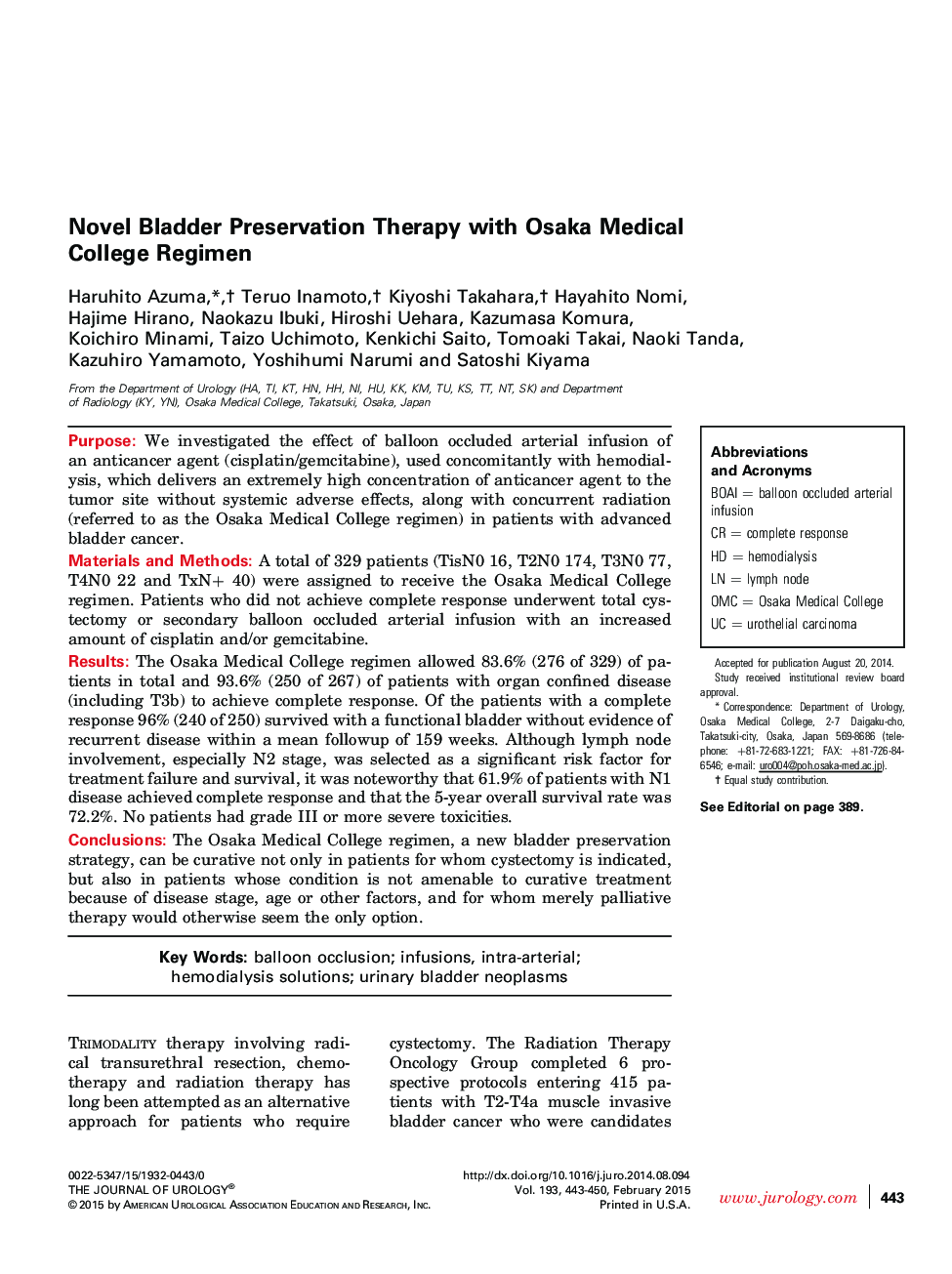| Article ID | Journal | Published Year | Pages | File Type |
|---|---|---|---|---|
| 3862375 | The Journal of Urology | 2015 | 8 Pages |
PurposeWe investigated the effect of balloon occluded arterial infusion of an anticancer agent (cisplatin/gemcitabine), used concomitantly with hemodialysis, which delivers an extremely high concentration of anticancer agent to the tumor site without systemic adverse effects, along with concurrent radiation (referred to as the Osaka Medical College regimen) in patients with advanced bladder cancer.Materials and MethodsA total of 329 patients (TisN0 16, T2N0 174, T3N0 77, T4N0 22 and TxN+ 40) were assigned to receive the Osaka Medical College regimen. Patients who did not achieve complete response underwent total cystectomy or secondary balloon occluded arterial infusion with an increased amount of cisplatin and/or gemcitabine.ResultsThe Osaka Medical College regimen allowed 83.6% (276 of 329) of patients in total and 93.6% (250 of 267) of patients with organ confined disease (including T3b) to achieve complete response. Of the patients with a complete response 96% (240 of 250) survived with a functional bladder without evidence of recurrent disease within a mean followup of 159 weeks. Although lymph node involvement, especially N2 stage, was selected as a significant risk factor for treatment failure and survival, it was noteworthy that 61.9% of patients with N1 disease achieved complete response and that the 5-year overall survival rate was 72.2%. No patients had grade III or more severe toxicities.ConclusionsThe Osaka Medical College regimen, a new bladder preservation strategy, can be curative not only in patients for whom cystectomy is indicated, but also in patients whose condition is not amenable to curative treatment because of disease stage, age or other factors, and for whom merely palliative therapy would otherwise seem the only option.
